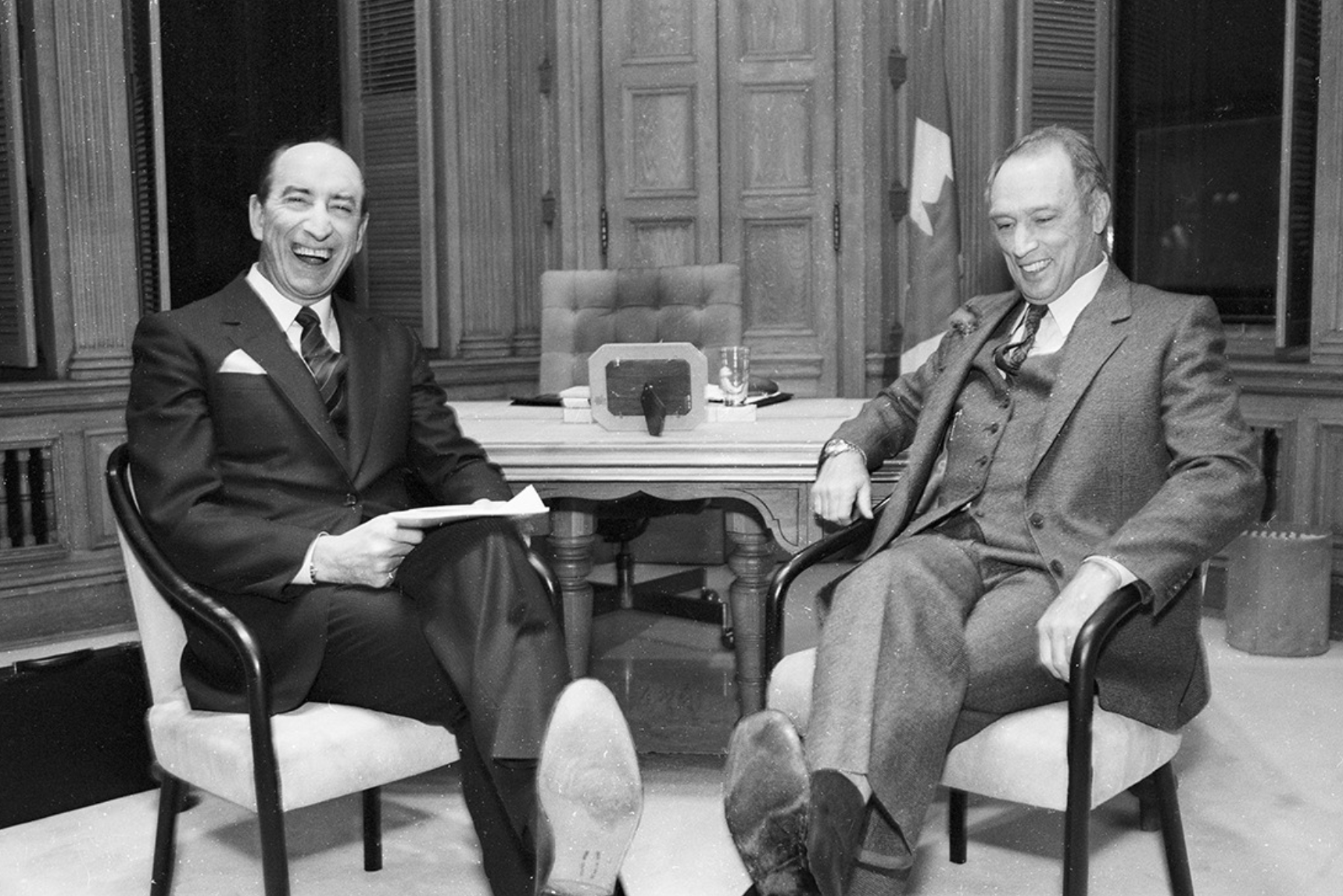Marc Lalonde (1929-2023): Pierre Trudeau’s Loyal Lieutenant

L. Ian MacDonald
May 12, 2023
Marc Lalonde was the quintessential Quebec minister in the governments of Pierre-Elliott Trudeau.
A member of the elite francophone cohort of Quebec’s Quiet Revolution in the 1960s, Lalonde had the obligatory law degree, in his case from Université de Montréal, and a master’s degree from Oxford.
He sat the right hand of the father — Justin Trudeau’s father — through all the political dramas and turmoil from the mid-1960s to the early 1980s.
And make no mistake, Lalonde was the most important player on Trudeau’s team, most of all throughout the constitutional dramas that established the precedents being cited today in federal-provincial relations, the most essential Canadian conversation on politics and principles held since Confederation.
Not to put it too fine a point on it, Trudeau wouldn’t have won the day without him, from one decade to the next, from the invocation of the War Measures Act in 1970 to the negotiation of the Charter of Rights and Freedoms in 1981-82.
Lalonde served as principal secretary to the prime minister in the first crisis, and minister of Federal-Provincial Relations and then Justice in the other, before becoming energy minister in 1980, two years before the Constitution was patriated. From the October Crisis to the energy wars with the western provinces, Lalonde was an indispensable Quebec lieutenant, strategist and confidant.
There was no shortage of “ministrable” talent around Pierre Trudeau — from Jean Chrétien to John Turner to Donald Johnston. The difference with Lalonde was that he had absolutely no leadership ambitions of his own, which meant his first loyalty was to Trudeau, and he could be counted on for controversial files such as the National Energy Program, which anyone with an eye to the party leadership would have avoided as a political albatross. It also meant he processed his role in Trudeau’s brain trust as an end unto itself rather than a means to succession — a crucial distinction in terms of both trust and time management. More technocrat than glad-hander, Lalonde had the intellect and talent to be prime minister, but a different relationship with power. That made him invaluable to Pierre Trudeau.
Above all, with his passing at 93 this week, Lalonde leaves Quebec and Canada a better place than he found them.
Lalonde was canny and tough — no doubt about it. He could match Trudeau for intellectual acuity, Allan MacEachen for strategic smarts and was unequalled in his day for political instincts. He was Trudeau’s Gordie Howe, elbows up in the corners. Welcome to the NHL.
Conservative Alberta premier Peter Lougheed knew all about that as the ruler of the Alberta oil patch while Lalonde was implementing the National Energy Program (NEP) in 1981 and 1982.
It wasn’t as if Trudeau and Lalonde didn’t have enough fed-prov stuff on their agenda in those days. As if the Charter wasn’t enough, the NEP was seen as the ultimate power grab by the West.
But Lalonde also knew when to give, as he did on the margins of the constitutional talks, in which the notwithstanding clause was Trudeau’s dealmaker for the Charter of Rights.
Without the opting out for the provinces, there would simply have been no Charter, a defining moment of the modern era in Canada. Lougheed, with his strong sense of history in the making, knew that as well as anyone.
When he was done with politics at the very end of the Trudeau years, Lalonde returned to Montreal and the practice of corporate law at Stikeman Elliott, a downtown boardroom law firm with stunning views of the mountain above, the city below and the river beyond. He had his place in Outremont, the farm on Île-Perrot. He and Claire, his wife of 67 years, had four kids; Marie, Luc, Paul and Catherine, and nine grandchildren.
For years, Lalonde played squash nearly every day at the Montreal Amateur Athletic Association (MAAA) on Peel St., and opponents knew better than stand in his way. Some members would watch him from behind the glass above. He was famously tough, but also a perfect gentleman.
“Marc Lalonde was brilliant,” Justin Trudeau said the other day, “I remember him and my dad sitting around our dinner table and engaging debates in anything and everything—including the country, its people and its future. It was clear my dad had a lot of respect for him, and as I grew up and came to know him myself, I did too.”
Quite right, Prime Minister. Marc Lalonde était un grand québécois, et un grand Canadien.
L. Ian MacDonald is Editor and Publisher of Policy Magazine.
